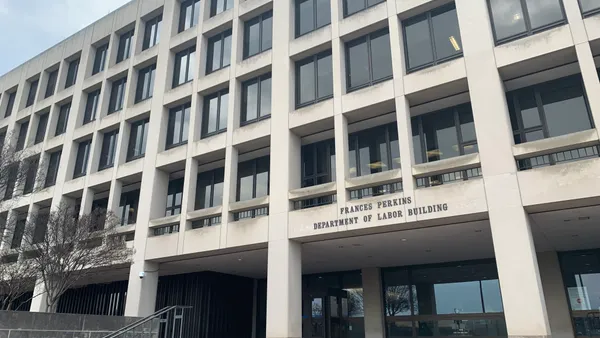Dive Brief:
- The Supreme Court has decided it doesn't want to decide the issue of religious rights versus no-cost contraception, according to media reports.
- NPR reports that the Court's unsigned opinion turned back several cases to federal appeals courts, telling everyone to try harder to work it all out. "The Court expresses no view on the merits of the cases," the opinion said.
- The case affects employers because if they are religiously affiliated (universities or hospitals, for example) the must participate in the requirement under the Affordable Care Act for most employer health plans to provide no-cost contraception for women. Despite compromise efforts to meet religious employers' objections, it hasn't been enough, those employers say.
Dive Insight:
According to NPR, the court's opinion and an accompanying order basically eliminated every lower appeals court rulings (only one sided with the religious employers). The goal, the justices wrote, is that both sides "should be afforded an opportunity to arrive at an approach going forward that accommodates petitions' religious exercise while at the same time ensuring that women covered by petitioners' health plans 'receive full and equal health coverage, including contraceptive coverage.' "
Both sides in the dispute claimed at least a partial victory, NPR reports. Contraceptive advocates noted a concurring opinion from Justices Sonia Sotomayor and Ruth Bader Ginsburg that stressed that the decision does not mean the court was approving coverage strategies that make it harder for female employees to obtain benefits.
"Requiring standalone contraceptive-only coverage would leave in limbo all of the women now guaranteed seamless preventive-care coverage under the Affordable Care Act," they wrote. "And requiring that women affirmatively opt into such coverage would 'impose precisely the kind of barrier to the delivery of preventive services that Congress sought to eliminate.' "













